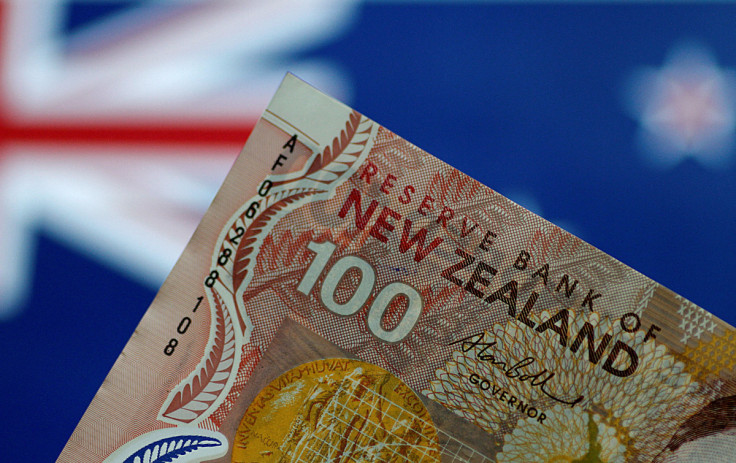New Zealand's RBNZ Seen Raising Rates By Historic 75 Bps: Reuters Poll

New Zealand's central bank will hike rates by 75 basis points for the first time ever on Wednesday to cool multi-decade high inflation, ramping up the speed of an already-aggressive monetary tightening campaign, a Reuters poll found.
Inflation at 7.20% is well above the Reserve Bank of New Zealand's (RBNZ) target range of 1-3%, which, along with a tight labour market, has prompted economists to predict a higher peak for the official cash rate (OCR), currently at 3.50%.
The expected policy shift stands in contrast with the neighbouring Reserve Bank of Australia, which has already shifted down to quarter-point moves, partly on concerns about falling housing prices which could have a knock-on effect on consumer spending.
New Zealand house prices rose more than 40% from the start of the pandemic to a peak in November last year but have since fallen more than 10%, and the RBNZ recently said a continued decline "remains desirable" for long-term financial stability.
Over 60% of economists polled, 15 of 23, expected the RBNZ to raise the OCR by 75 bps to 4.25% at its meeting on Wednesday, following a succession of 50 bp hikes in the five previous meetings.
The remaining eight economists polled over Nov. 14-17 forecast a sixth 50 bp increase to 4.00%.
"To mash up the words of an American philosopher: when inflation's out the band, Gov, hike it like it's hot. Inflation pressures have appeared to heat up...to the point that we and most forecasters expect the RBNZ will step up the pace of hikes to a 75 bp move on Wednesday," said Nick Tuffley, chief economist at ASB.
Tuffley added part of the reason for stepping up the pace now is that the RBNZ's next policy decision is not due for another three months.
The largest banks in the country - ANZ, ASB, Kiwi Bank, Bank of New Zealand and Westpac - expect a 75 bp hike on Wednesday, matching the recent pace of the U.S. Federal Reserve. Interest rate futures are pricing a roughly 60% chance of that happening.
A slim majority of economists, 13 of 23, now expect the OCR to reach 4.75% or higher by end-March, 75 bps above the last poll conducted in September.
"The RBNZ has already proven that it's not in the least afraid to go its own way, and the global tilt towards slower hikes is unlikely to play a significant part in the decision," noted Sharon Zollner, chief economist at ANZ.
"We are forecasting the OCR to peak at 5.0%, via another 75 bp hike in February on a 'let's just get it done' basis. If data cools more rapidly than expected the RBNZ could well slow the pace at that point."
Rates were expected to peak at 4.75% and remain unchanged until the end of next year, according to the median view in the poll.
According to the latest RBNZ survey, inflation is expected to ease only modestly over the coming year and will be higher than previously predicted. A separate Reuters poll predicted inflation to fall within the RBNZ's target only by end-2023.
(Reporting and polling by Devayani Sathyan; Editing by Vivek Mishra, Ross Finley, Kirsten Donovan)
© Copyright Thomson Reuters 2024. All rights reserved.











